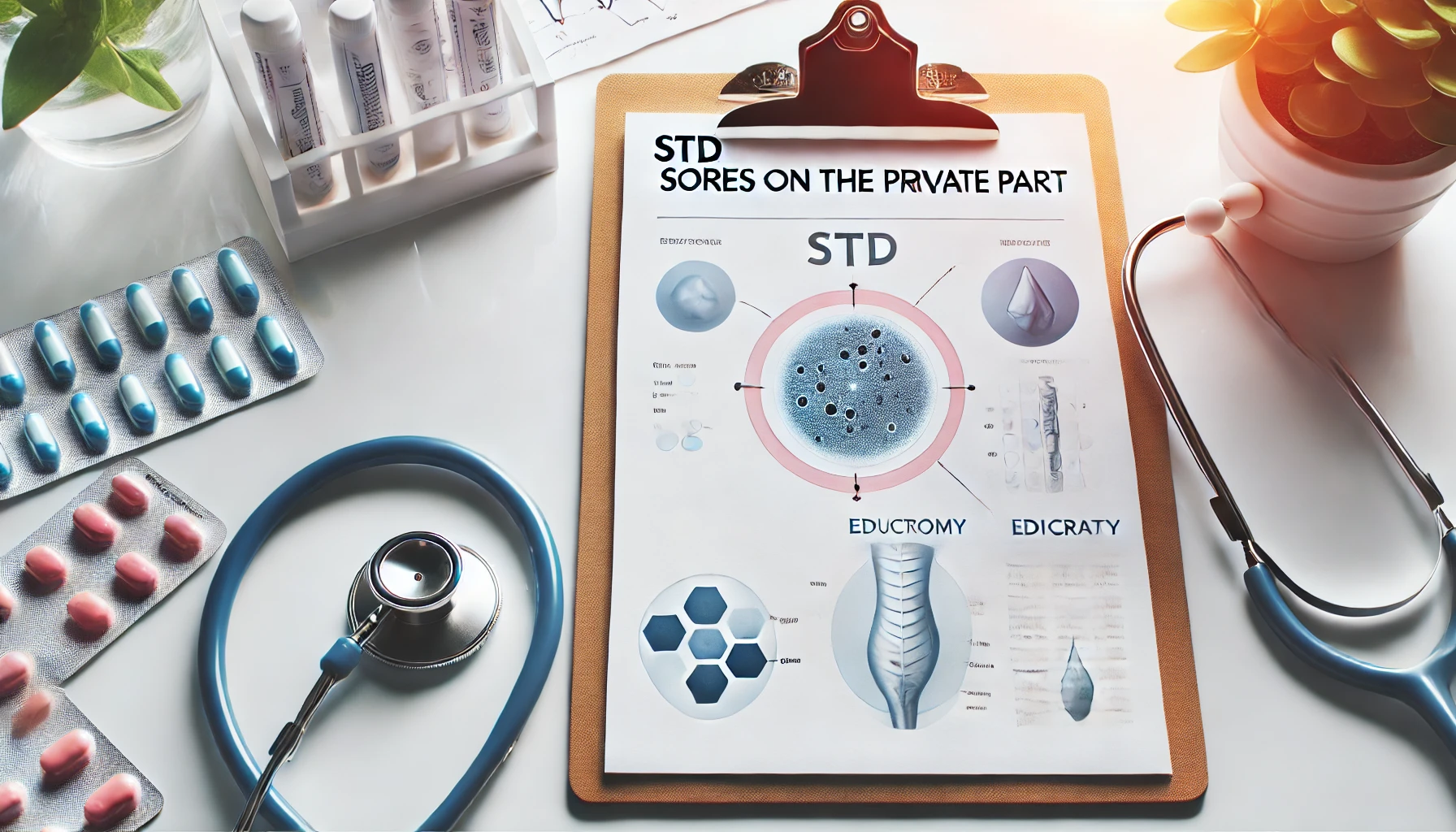If you notice a sore, bump, or open lesion on your private part, it can be worrying. While not every sore is serious, it could be a sign of a sexually transmitted disease (STD). Identifying the cause early helps prevent complications and protects your health.
In this article, we’ll go over which STDs cause sores in the genital area, how they look and feel, and what you should do if you notice one.
What Are Genital Sores?
Genital sores are abnormal bumps, ulcers, or open wounds on or around the genital area. They may:
✔️ Be painful or painless
✔️ Appear as red bumps, fluid-filled blisters, or open ulcers
✔️ Cause itching, burning, or irritation
✔️ Be accompanied by other symptoms like discharge, fever, or swollen lymph nodes
They can appear on the vulva, penis, scrotum, anus, or nearby skin.
STDs That Cause Sores on the Private Part
1. Genital Herpes (HSV-1 or HSV-2)
- Most common cause of genital sores
- Caused by the herpes simplex virus
- Starts as small, painful blisters that burst and turn into open sores
- May be accompanied by flu-like symptoms, including fever and body aches
- Sores typically heal within 2–4 weeks, but the virus stays in the body
- Can recur, especially during times of stress or illness
2. Syphilis
- Caused by the bacterium Treponema pallidum
- The first stage (primary syphilis) often shows up as a single painless sore called a chancre
- The sore appears at the site of infection (penis, vulva, vagina, anus, or mouth)
- Heals on its own in 3–6 weeks, but the infection continues without treatment
- If untreated, syphilis progresses to later stages with more serious complications
3. Chancroid
- Less common in some countries but still occurs
- Caused by the bacterium Haemophilus ducreyi
- Sores are painful, soft, and may bleed easily
- Often accompanied by swollen lymph nodes in the groin
4. Lymphogranuloma Venereum (LGV)
- Caused by a certain strain of chlamydia
- Starts with a small, often unnoticed sore on the genitals
- Progresses to painful swollen lymph nodes and rectal inflammation
- More common in men who have sex with men
5. Molluscum Contagiosum (Not technically an STD, but sexually transmissible)
- Caused by a poxvirus
- Leads to small, firm, painless bumps with a dimple in the center
- Can spread through skin-to-skin contact during sex
Other Causes of Genital Sores (Non-STD)
✔️ Ingrown hairs from shaving
✔️ Skin conditions like eczema or psoriasis
✔️ Allergic reactions to soaps, condoms, or hygiene products
✔️ Yeast infections with irritation and skin breakdown
✔️ Insect bites or minor skin trauma
When to See a Doctor
🚨 You should seek medical attention if:
- You notice any unexplained sore, bump, or blister on your genitals
- The sore is painful, growing, or not healing within a few days
- You have additional symptoms like fever, discharge, or swollen glands
- You had unprotected sex or a new sexual partner recently
Early diagnosis leads to faster treatment and helps protect your partner(s) too.
Diagnosis and Testing
✔️ Visual exam by a healthcare provider
✔️ Swab testing of the sore for viruses or bacteria
✔️ Blood tests to check for infections like herpes or syphilis
✔️ Sometimes biopsy or culture if diagnosis is unclear
Treatment Options
✔️ Herpes: No cure, but antiviral medication like acyclovir can reduce outbreaks and symptoms
✔️ Syphilis: Treated with a single penicillin injection in early stages
✔️ Chancroid and LGV: Treated with antibiotics like azithromycin or doxycycline
✔️ Molluscum Contagiosum: Usually resolves on its own; can be removed by a doctor if needed
Avoid sex until the sores are completely healed and your doctor says it’s safe.
Prevention Tips
✔️ Always use condoms and dental dams during sex
✔️ Avoid sexual contact if you or your partner has sores or symptoms
✔️ Get tested regularly and share results with your partner(s)
✔️ Don’t pop or scratch any bumps or sores
Final Thoughts
Sores on the private part can be a sign of an STD—but with early diagnosis and treatment, most are manageable or curable. Don’t guess or wait. The sooner you know, the sooner you can protect your health.
💙 Listen to your body. Get tested. And take care of your sexual health.
References
- CDC – Genital Herpes: www.cdc.gov/std/herpes
- CDC – Syphilis: www.cdc.gov/std/syphilis
- CDC – Chancroid: www.cdc.gov/std/chancroid
- CDC – LGV: www.cdc.gov/std/lgv
- Mayo Clinic – Molluscum: www.mayoclinic.org

Leave a Reply